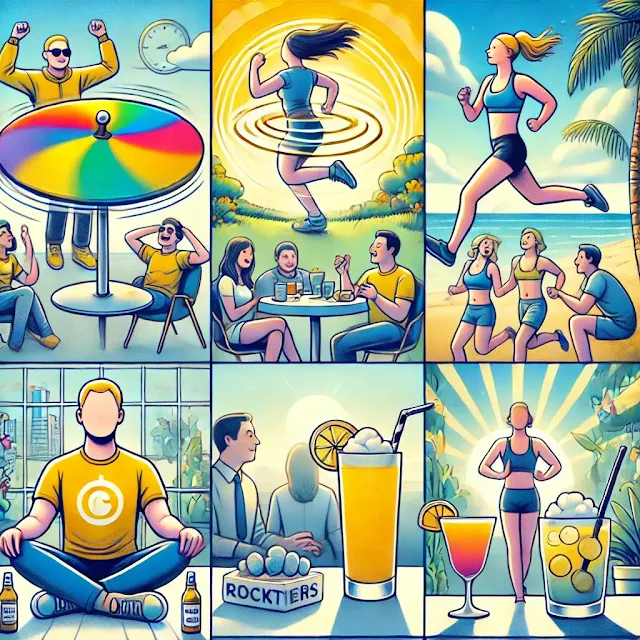How to Feel Drunk Without Alcohol: Safe Alternatives to Mimic Intoxication
Many people enjoy the light, carefree feeling of being tipsy, but consuming alcohol comes with potential risks like hangovers, impaired judgment, and long-term health consequences. Fortunately, there are safe and natural ways to experience sensations similar to being drunk, without the need for alcohol. Here are some effective and healthy alternatives to mimic intoxication:
1. **Breathwork or Hyperventilation**
Breathwork exercises, such as rapid breathing or controlled hyperventilation, can create feelings of lightheadedness and euphoria. This occurs because deep breathing temporarily alters the balance of oxygen and carbon dioxide in the blood, leading to a sensation similar to mild intoxication. Be cautious, though, as overdoing it can cause dizziness or fainting.
2. **Spinning for Disorientation**
Spinning in circles for a few seconds is a simple way to simulate the dizziness often associated with alcohol consumption. The disoriented, slightly off-balance feeling can mimic the sense of losing control that some people associate with being tipsy. Just be sure to stop before you feel too dizzy to avoid nausea or falling.
3. **Music and Rhythm**
Listening to upbeat, euphoric music can activate the brain’s reward centers, triggering a natural high similar to the emotional effects of alcohol. Dancing or moving rhythmically to music can also enhance this effect, creating a carefree sensation that mimics the light, uninhibited feelings associated with being drunk.
4. **Laughter and Social Connection**
Laughter is one of the best ways to naturally release endorphins, which can produce a “high” that feels similar to the mood boost from alcohol. Being around friends and engaging in fun, lighthearted activities can elevate your mood and create the feeling of being carefree without a single drink.
5. **Runner’s High or Intense Exercise**
Physical activity, especially high-intensity exercise like running, can induce a natural state of euphoria known as a "runner's high." This occurs due to the release of endorphins and other feel-good chemicals in the brain, leading to a sensation of happiness and reduced inhibition, similar to mild intoxication.
6. **Meditation and Mindfulness**
Engaging in deep meditation or mindfulness practices can bring about feelings of detachment or mental clarity that resemble the relaxed state some people associate with alcohol. The sense of calm and mental release can make you feel like you're floating or disconnected from stress, providing a similar sense of freedom.
7. **Sleep Deprivation**
Although not ideal for long-term health, temporary sleep deprivation can create feelings of mental fogginess, slowed reactions, and a lack of coordination, much like mild intoxication. However, this method should be used sparingly, as chronic lack of sleep can negatively affect your health.
8. **Placebo Effect**
The mind is powerful, and sometimes simply believing you're consuming alcohol can be enough to trick your brain into feeling the effects. Non-alcoholic drinks or mocktails can be consumed in a social setting, and the power of suggestion may lead to feelings of lightheadedness or relaxation, similar to drinking.
Final Thoughts
These safe alternatives allow you to experience some of the fun, lighthearted sensations of being tipsy without any of the downsides associated with alcohol. Whether through breathwork, exercise, or just laughing with friends, there are plenty of ways to tap into those feel-good vibes naturally.
By exploring these alternatives, you can enjoy the best of both worlds: the freedom of feeling "drunk" and the benefits of staying healthy and clear-headed!







